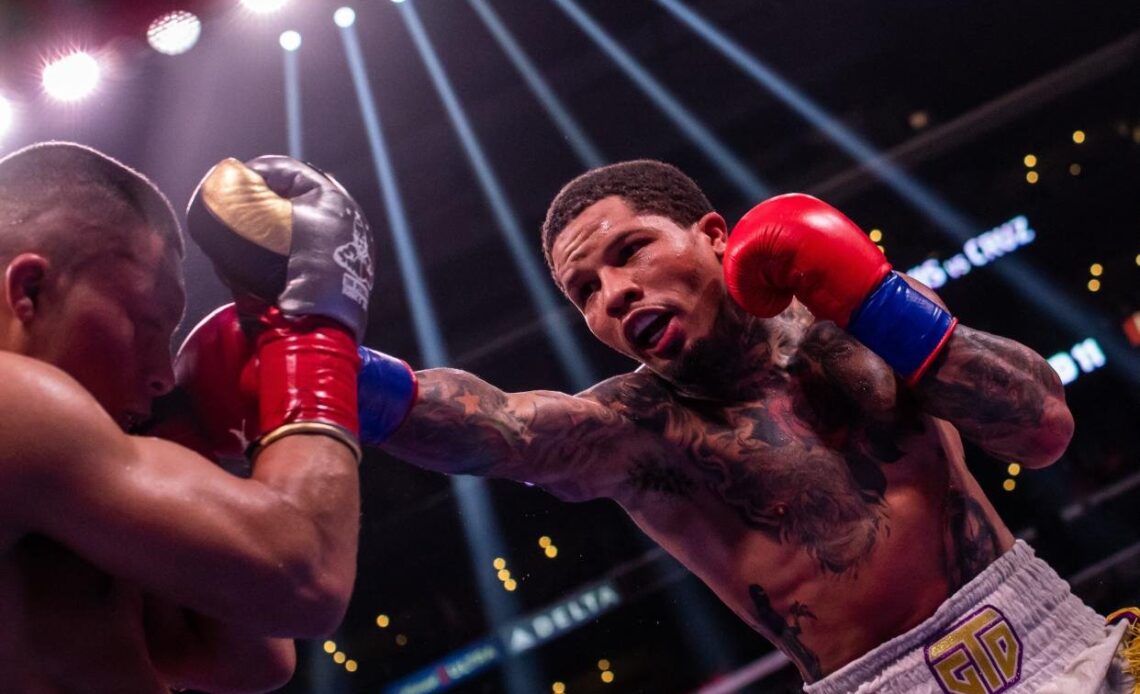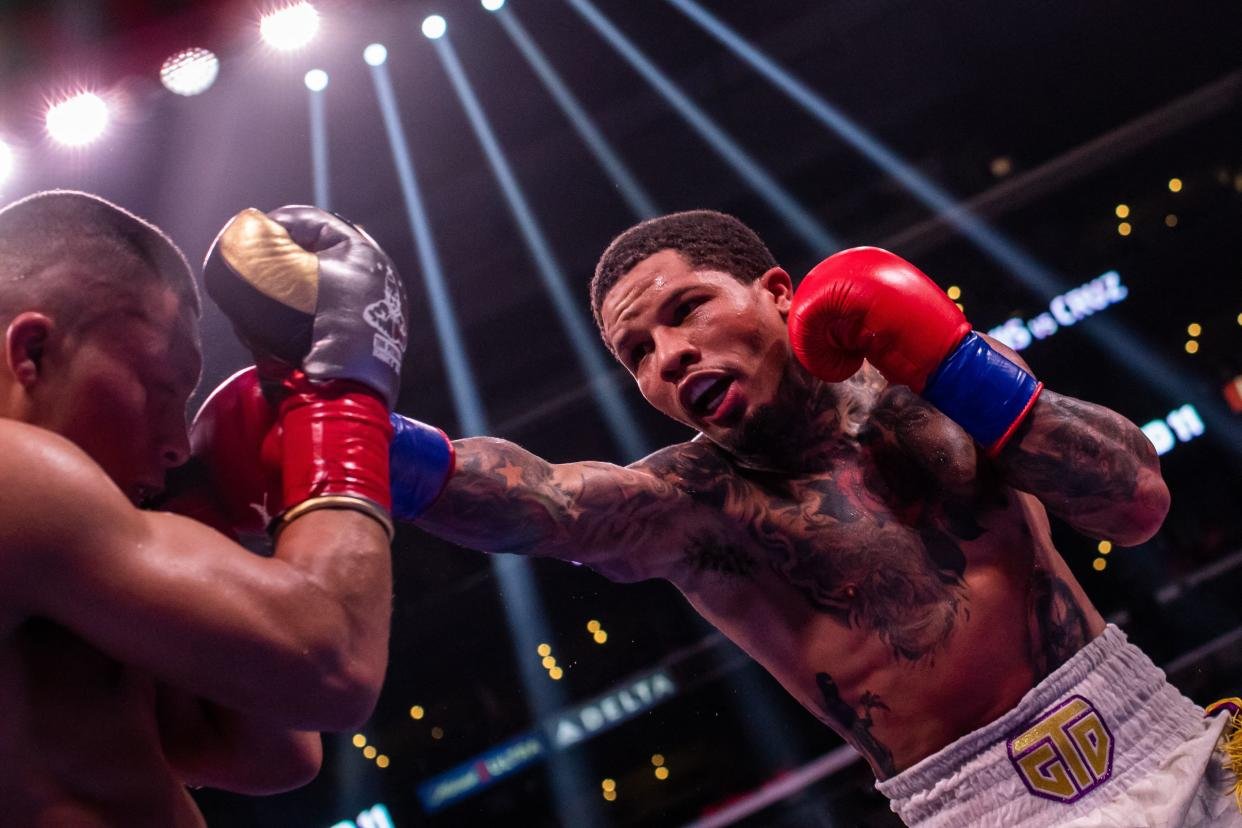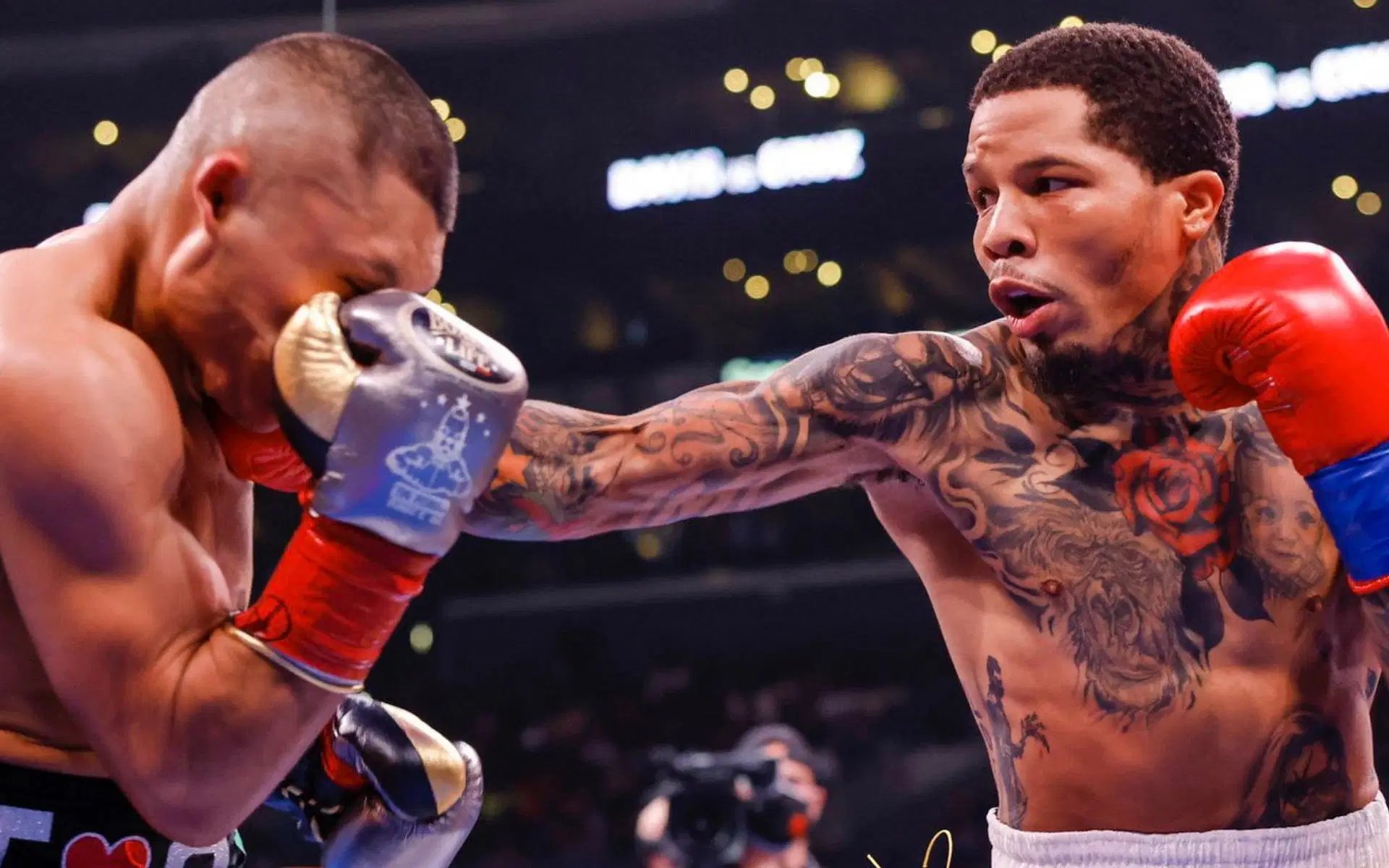
The world of professional boxing is no stranger to controversy, and the latest revelation by Gervonta “Tank” Davis has added yet another layer of drama to the sport. In a bold move that has shaken fans and experts alike, Davis has gone public with allegations that referee bias played a significant role in favoring Lamont Roach during their highly anticipated fight. The claim, which has sent shockwaves through the boxing community, raises questions about fairness, corruption, and the integrity of the sport. In this article, we’ll dive deep into Davis’ shocking accusations, the context surrounding the fight, and the broader implications for boxing as a whole.
Gervonta Davis is one of boxing’s most talked-about figures. Known for his ferocious knockout power and brash persona, Davis has established himself as a formidable force in the ring. However, his recent allegations against referee bias have taken the sport by storm. According to Davis, there was an orchestrated effort by the officials to tilt the scales in favor of Lamont Roach, his opponent in a controversial fight that has since garnered widespread attention.

Davis revealed that, despite his dominant performance throughout the match, he felt that the referee’s decisions were consistently biased, undermining his chances of securing a clear victory. The 28-year-old boxer claims that several key moments in the fight were influenced by referee interference, including questionable stoppages and warnings that may have been intended to protect Roach.
To understand the gravity of Davis’ accusations, it’s important to revisit the fight between him and Lamont Roach. The matchup was highly anticipated, with fans and analysts alike expecting a thrilling showdown between two of boxing’s top talents. Davis entered the ring as the heavy favorite, boasting a nearly flawless record and a reputation for his knockout prowess. Roach, on the other hand, was seen as a solid but lesser-known contender who had yet to truly prove himself on the world stage.
As the fight progressed, Davis appeared to dominate Roach with his superior skills, landing powerful punches and maintaining control of the tempo. However, despite his apparent advantage, Davis faced multiple interruptions and penalties from the referee. Several of these decisions appeared to favor Roach, including a controversial point deduction for Davis during a pivotal moment in the bout. Davis believes that the referee’s decisions, rather than the fighters’ actions, were what ultimately influenced the outcome.

Davis’ accusations of referee bias have sparked intense debate within the boxing community. The boxer has stated that certain calls were made with a clear intent to level the playing field, even though Roach’s performance didn’t warrant such intervention. He argues that the referee’s actions were not only unjust but also detrimental to the integrity of the sport.
One of the most significant moments that Davis highlights is a series of warnings given to him for minor infractions, while Roach was allegedly allowed more leeway in similar situations. Davis claims that the referee’s selective enforcement of the rules was a calculated move to protect Roach from his power, thus keeping the fight from swinging entirely in Davis’ favor. This imbalance in officiating, according to Davis, was crucial in allowing Roach to remain competitive throughout the match.
In boxing, the role of the referee is paramount. They are responsible for enforcing the rules, ensuring the safety of the fighters, and maintaining the flow of the fight. However, when a referee’s decisions are perceived to be biased or unfair, it raises questions about the legitimacy of the entire match. In the case of Davis vs. Roach, the controversial officiating has led many to wonder whether the result was truly a reflection of the fighters’ skills or whether external factors played a significant role.
Davis’ assertion that referee bias affected the outcome is a serious accusation, as it suggests that the fight may have been influenced by factors beyond the fighters’ control. For many boxing fans, the idea of an unfair match raises concerns about the sport’s credibility and the need for greater transparency in officiating.

The controversy surrounding Davis’ allegations of referee bias brings attention to a broader issue within the sport: the need for reform in how referees are trained and monitored. In professional boxing, referees are expected to make split-second decisions that can have a significant impact on the outcome of a fight. While most referees are experienced professionals, the question remains: how can the sport ensure that these officials remain impartial and free from any form of bias?
Some experts argue that boxing needs to adopt stricter oversight of referees, perhaps through more comprehensive training programs or independent review boards that can assess controversial decisions in real-time. Others suggest the implementation of video technology, similar to VAR in soccer, to allow for a more objective review of referee decisions during matches. Whatever the solution, it’s clear that the issue of referee bias is one that needs to be addressed if the sport is to maintain its integrity.
The fallout from Gervonta Davis’ allegations has been immediate, with both fans and analysts taking sides. Some have expressed support for Davis, arguing that his concerns are legitimate and that referees in boxing often operate under immense pressure, which can sometimes lead to bias. Others have dismissed the accusations, claiming that Davis is simply looking for someone to blame after what they consider to be a close or controversial fight.
Despite the polarized reactions, one thing is clear: the conversation surrounding referee bias in boxing is not going away anytime soon. Whether or not Davis’ allegations are proven true, they have brought a critical issue to the forefront of the sport, forcing boxing authorities to reconsider how officiating is handled.

As boxing continues to evolve, it faces a growing need to address issues related to fairness and integrity. The controversy surrounding the Davis-Roach fight is just one example of the challenges the sport faces in maintaining the trust of its fans. For boxing to move forward, it will need to focus on ensuring that all aspects of the sport, from the fighters to the referees, operate in a transparent and unbiased manner.
The future of boxing may depend on the sport’s ability to adapt to these challenges. While the fight between Gervonta Davis and Lamont Roach may have been overshadowed by allegations of referee bias, it could also serve as a turning point for the sport. By addressing the concerns raised by Davis and others, boxing has the opportunity to improve its officiating standards and rebuild the trust of its fans.
In the world of professional boxing, the allegations made by Gervonta Davis serve as a powerful reminder of the importance of fairness and transparency. The boxer’s claims of referee bias have sparked a crucial conversation about the need for reform within the sport. Whether or not Davis’ allegations are proven true, the issue of officiating in boxing remains an urgent topic that demands attention.

As the boxing world moves forward, it is essential that the sport take steps to ensure that all athletes are given a fair chance to showcase their skills. Whether through enhanced training for referees, independent oversight, or the introduction of video review systems, the sport must evolve to meet the demands of a modern audience. Only through greater accountability can boxing maintain its place as one of the world’s most respected and beloved sports.